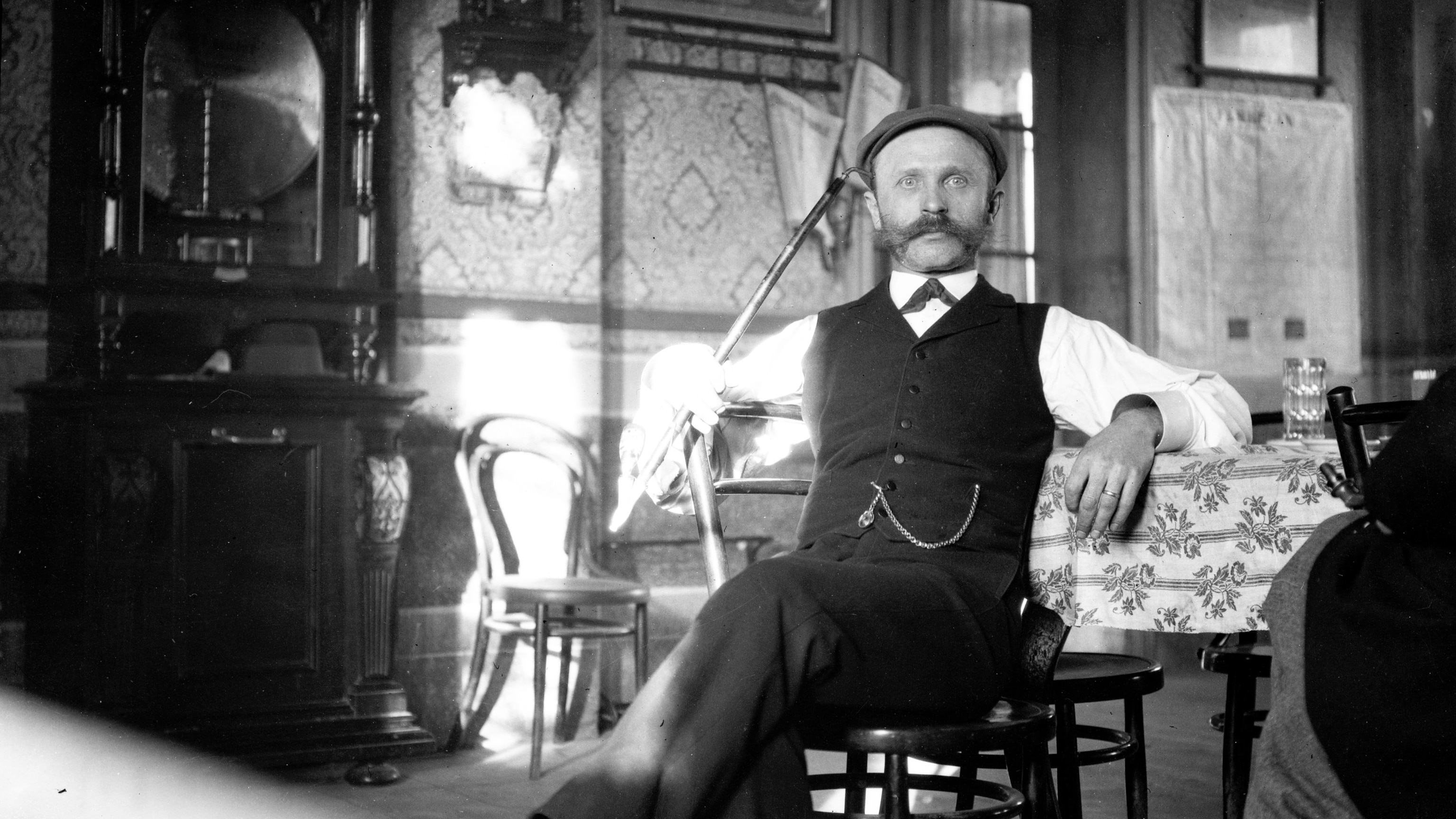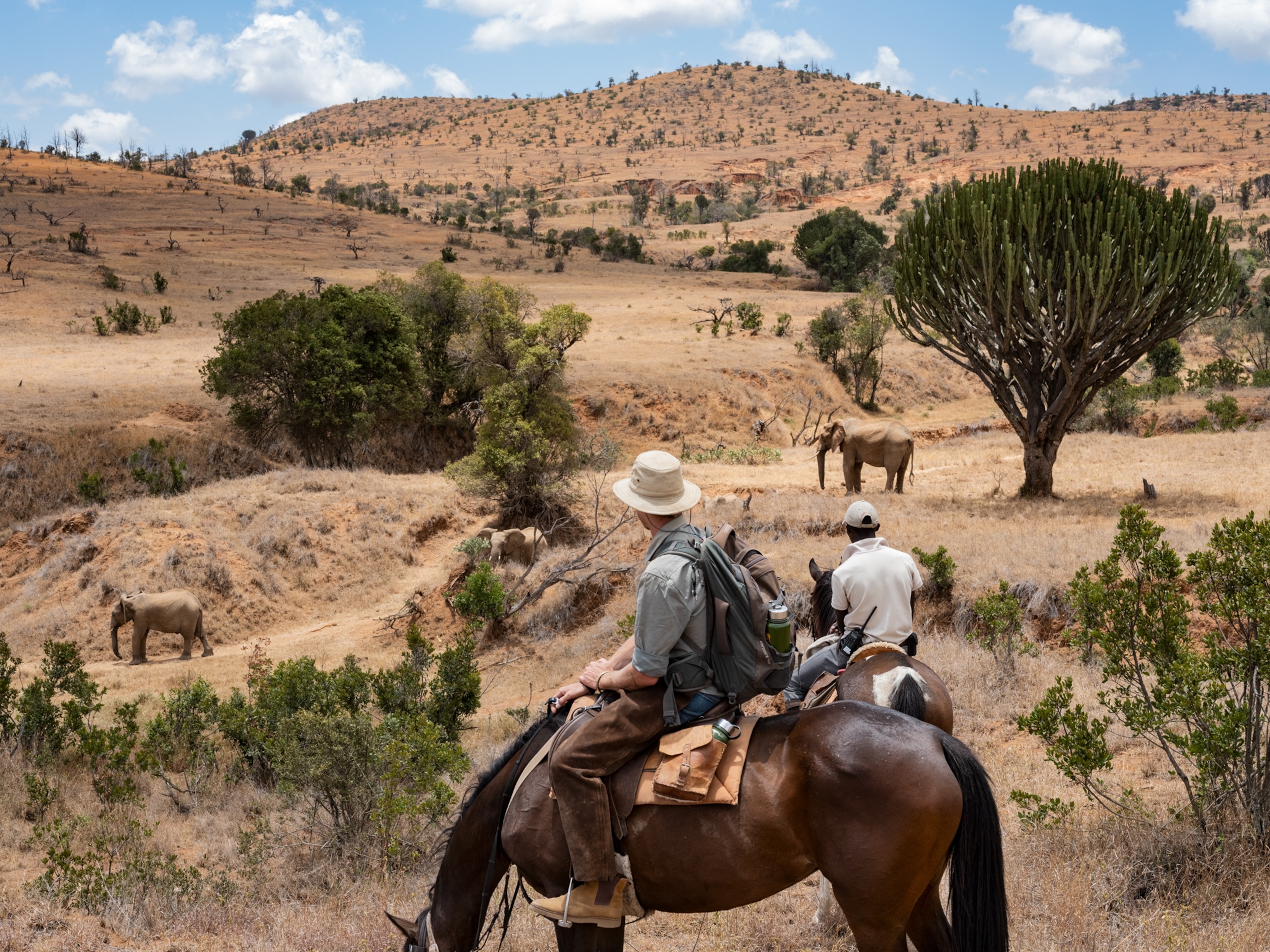
You Can Travel Like a 1900s Adventurer—Here’s How
A new book shows what a turn-of-the century food explorer can teach us about modern travel.
In 1900 people rarely left their hometown, let alone traveled around their country. But David Fairchild was different.
Fairchild was a food spy for the American government at the turn of the 20th century. He was a botanist, a plant adventurer assigned by the U.S. Department of Agriculture to circle the world in search of exotic plants that could become new foods back home. Along the way he picked up avocados, mangoes, nectarines, dates, kale, and hundreds of other crops.

Fairchild visited the island of Java to see the teeming palms and strange fruits of the tropics. He sailed to Fiji, the so-called Cannibal Islands, and drank mouth-numbing kava with men who had eaten human flesh. In Chile, he picked up a peculiar fruit known as an alligator pear, a.k.a. the avocado, its insides green and smooth.
His path was full of unimaginable adventure—and often danger too. He bargained for plants with Egyptian royalty, and charmed Bavarian hops growers to bring to America the best hops in the world. He witnessed death, outran diseases, and got arrested for espionage. In all, he traveled to more than 50 countries—all by boat.
What can we learn from his travels? More than you’d think. As I scoured Fairchild’s 120-year-old journals to write The Food Explorer, the True Adventures of the Globe-Trotting Botanist Who Transformed What America Eats, I picked up Fairchild’s best advice that still applies to your next voyage.
Ask lots of questions
Fairchild didn’t just arrive in a country hoping to stumble upon something magical. He asked anyone he could any question he could think of. What’s the greatest fruit in this country? How do you grow it? Who should I talk to next? If you’re looking for that charming off-the-beaten path restaurant or the non-touristy view that no one knows about, don’t just rely on your guidebook. Ask a local. He often tried to speak the native language wherever he was, and always thanked people for their advice.
Reciprocate kindness
Sometimes, Fairchild was a spy. But more often, he was a diplomat. He sought ways to reciprocate for a pleasant stay or a delicious meal. He wrote thank you notes and left lavish gifts, like the time he bought a plaque to hang in the doorway of the best hops-grower in Bavaria. Not long after Fairchild visited Japan and arranged the gift of cherry blossom trees to Washington D.C., he arranged a return shipment of flowering dogwood trees—native to America—to thank his Japanese friends.

Write things down
Fairchild documented every detail. Who he talked to, what new foods he tried. He always had a notebook in his pocket and filled it with fits and starts to remind himself of the lessons he had learned and the recommendations people gave him. You can extend your travels by reminding yourself of what you were thinking, and what you were feeling during a special trip. Future you—and perhaps your descendants—will delight in rediscovering relics from a great voyage.
Send letters
Not emails or texts, but letters. Fairchild would occasionally spend afternoons writing to friends and family back home about his travels. It helped him think better, he said, and to reflect on a novel experience by relaying it to someone who wasn’t there. One time, on a boat in the India Ocean, Fairchild wrote to his mother (in Kansas) that he was having a marvelous time and had yet to experience any violence at all. A moment after he finished writing, two men broke into his cabin screaming, fighting, and bleeding all over the floor. After the men were dragged away, Fairchild unsealed the letter and, at the bottom, added a postscript.
Push on
Think your delayed flight is bad? On one of Fairchild’s first trips, he took a train from Washington, D.C., to San Francisco to catch a boat. He missed it. Then he took another train to New Orleans and missed a boat there, too. Finally, he returned to New York, not far from where he had started, and caught a steamship across the ocean. Another time, Fairchild spend a week eating only onions as he was quarantined on a boat in the Persian Gulf that suspected of having a case of typhoid fever on board. Travel came with its indignities—and it still does. Find a way to look beyond the inconveniences and, as Fairchild would often say, “push on.”
Learn more about David Fairchild’s adventures in the new book, The Food Explorer, The True Adventures of the Globe-Trotting Botanist Who Transformed What America Eats, available now.
You May Also Like
Go Further
Animals
- Octopuses have a lot of secrets. Can you guess 8 of them?
- Animals
- Feature
Octopuses have a lot of secrets. Can you guess 8 of them? - This biologist and her rescue dog help protect bears in the AndesThis biologist and her rescue dog help protect bears in the Andes
- An octopus invited this writer into her tank—and her secret worldAn octopus invited this writer into her tank—and her secret world
- Peace-loving bonobos are more aggressive than we thoughtPeace-loving bonobos are more aggressive than we thought
Environment
- Listen to 30 years of climate change transformed into haunting musicListen to 30 years of climate change transformed into haunting music
- This ancient society tried to stop El Niño—with child sacrificeThis ancient society tried to stop El Niño—with child sacrifice
- U.S. plans to clean its drinking water. What does that mean?U.S. plans to clean its drinking water. What does that mean?
- Food systems: supporting the triangle of food security, Video Story
- Paid Content
Food systems: supporting the triangle of food security - Will we ever solve the mystery of the Mima mounds?Will we ever solve the mystery of the Mima mounds?
History & Culture
- Strange clues in a Maya temple reveal a fiery political dramaStrange clues in a Maya temple reveal a fiery political drama
- How technology is revealing secrets in these ancient scrollsHow technology is revealing secrets in these ancient scrolls
- Pilgrimages aren’t just spiritual anymore. They’re a workout.Pilgrimages aren’t just spiritual anymore. They’re a workout.
- This ancient society tried to stop El Niño—with child sacrificeThis ancient society tried to stop El Niño—with child sacrifice
- This ancient cure was just revived in a lab. Does it work?This ancient cure was just revived in a lab. Does it work?
Science
- The unexpected health benefits of Ozempic and MounjaroThe unexpected health benefits of Ozempic and Mounjaro
- Do you have an inner monologue? Here’s what it reveals about you.Do you have an inner monologue? Here’s what it reveals about you.
- Jupiter’s volcanic moon Io has been erupting for billions of yearsJupiter’s volcanic moon Io has been erupting for billions of years
- This 80-foot-long sea monster was the killer whale of its timeThis 80-foot-long sea monster was the killer whale of its time
Travel
- How to plan an epic summer trip to a national parkHow to plan an epic summer trip to a national park
- This town is the Alps' first European Capital of CultureThis town is the Alps' first European Capital of Culture
- This royal city lies in the shadow of Kuala LumpurThis royal city lies in the shadow of Kuala Lumpur
- This author tells the story of crypto-trading Mongolian nomadsThis author tells the story of crypto-trading Mongolian nomads




